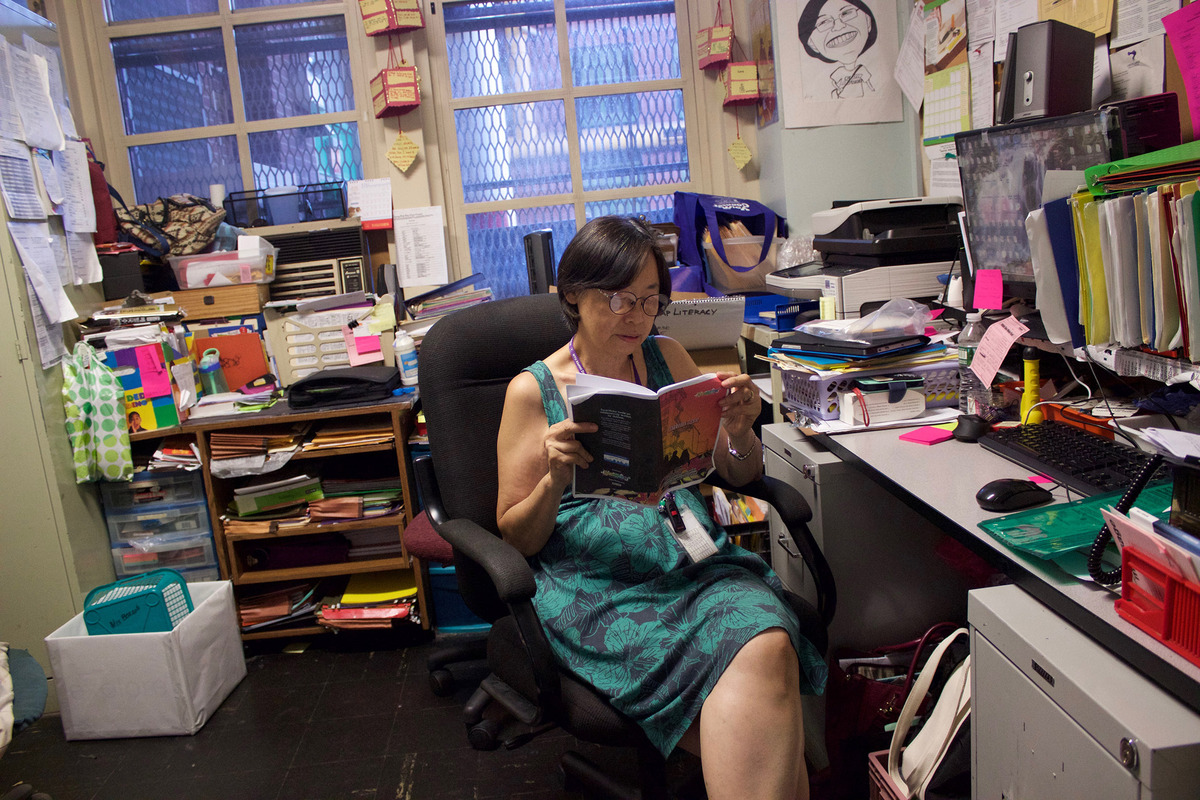Satellite babies feel the pain of separate lives
By Hong Xiao in New York | China Daily | Updated: 2019-03-27 09:02

The term "satellite babies" was coined by Yvonne Bohr, a clinical psychologist at York University in Toronto, Canada, who has been studying such separations since 2006.
"Babies are often sent away at around the time they have just developed a strong attachment to their biological parents. As a result, they may experience distress during this separation," Bohr said.
"When they return, the parents in turn may expect the children to be very happy to be home, often not understanding that for the child, this isn't home," she said.
Research suggests that a "satellite" upbringing can disrupt a child's environment, which can lead to depression, anxiety and misbehavior at school.
Studies show that the trauma experienced by both children and parents can last a lifetime.
Lois Lee directs the Chinese-American Planning Council school-age child care program in Queens, New York.
Founded in 1965, the council is a nonprofit that provides support to Asian-American, immigrant and low-income communities in the city.
Lee, who has worked with immigrant families for more than 50 years, said 70 percent of the children now at the council are Asian-Americans, of which about 70 percent are satellite babies.
In her career as a teacher and administrator in this field, Lee has worked with immigrant families and helped thousands of children, including Tse and Chen.
She said most parents of satellite babies work long hours every day and cannot afford child care, the cost of which in New York ranges from $11,700 to $14,144 a year, respectively, for child and infant care, according to the Economic Policy Institute, a nonprofit think tank in Washington.
"These young couples work long hours at jobs in restaurants, nail salons, grocery stores, dry cleaners and hotels, doing work that no one wants to do, and yet they can't get childcare services for their families to keep the children here," Lee said.
She said reunions can be difficult for both parents and children after a long-term separation.
"They (parents) didn't see their children's first steps. They didn't hear them when they first learned how to talk. They lost five years bonding with them," she said.
Even after they live together, parents cannot always manage to take care of their children, and continue to work long hours to secure a better future.
"The parents still work until 9 pm... they come home late and the children have to have dinner by themselves, eating food that has been prepared," she said.
Some children feel guilty because their parents cannot take care of them.
"They feel they are a burden to their family, and they think: 'Why did you bring me back here? You don't want to spend any time with me'," Lee said.
The council's operating hours run from the end of the school day until 6 pm and it also opens on holidays when schools close.
The staff members perform tasks that parents would normally do, but which they do not always have time for, such as helping with homework, going for walks or to the movies.
"We are like the children's substitute parents. We try to help them embrace their identity, appreciate how hard their parents work, that their parents did not want to give them up, but they had no choice," Lee said.
























